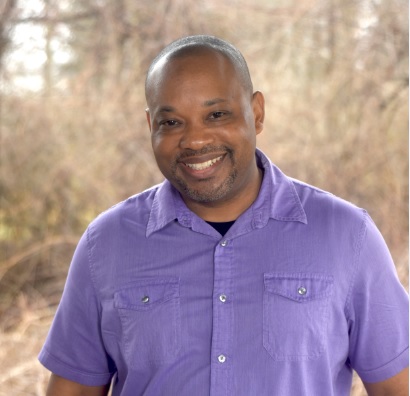
Glen Guyton is cheif operating officer and director of Convention Planning for Mennonite Church USA.
The Vision
In Elijah 19, the prophet Elijah was in despair because of an uncertain future. Jezebel was on his tail. Elijah was afraid and seemingly alone. Elijah found a solitary tree to sit unearth and prepared for his death. Then God said to Elijah, “Get up and eat.” God helped Elijah increase his strength for the journey ahead. Then God showed Elijah that he would not be alone, there would be seven thousand strong people with him.
The Future Church Summit is not necessarily about developing new vision. It may be more about detecting or rediscovering the vision that is already before us. Even a great prophet like Elijah felt alone and isolated and disconnected from the vision that God had for him. Sometimes we need to be reminded that we are not alone and to “get up and eat” to move forward on our journey.
The Future Church Summit will provide an opportunity for participants to dream and dialogue together around the question: How will we follow Jesus as Anabaptists in the 21st Century? The summit will serve as a gathering to imagine an Anabaptist future for Mennonite Church USA.
To fully live into our potential, our processes must bring together diverse groups of stakeholders and engage them in dynamic and meaningful conversations that will help create system-wide buy-in and bring about positive change within the denomination.
The Roles of Delegates in the Future Church Summit
The Future Church Summit does not change the role of delegates in our institutional structure, it is simply a process that fits who we are as people of faith who value community. There is nothing in our bylaws that prevents delegates from listening to and interacting with resource people or invited guests. We should never lose sight that we are people of faith and there are times when we need to assemble together to discuss and consider our calling.The delegates will retain the power to affirm, reject or ignore themes that come from The Future Church Summit. Yet the Future Church Summit is based on collaboration, the sharing and gleaning of ideas from the broader community. It is not about rules, regulations or institutional edicts.
Through interactive polling technology[i], participants will have the opportunity to express their hopes and dreams for Mennonite Church USA, resulting in a document that brings together the convergent ideas and priorities that have emerged through deliberation in the process. Immediately following the Future Church Summit, the Delegate Assembly will determine if the outcomes will specifically guide the priorities of the Executive Board and shape resolutions from the delegate body in future assemblies.
Themes & Orange Marmalade
The Theme Team, a diverse group of twelve people from across Mennonite Church USA, will play a vital role in the Future Church Summit. They will be responsible for reading the data coming in live from all participants at various times during the meeting and creating quick summaries of the main messages — the themes. The Theme Team will share a curated report with the entire group. As Mennonites we often have a strong need to know that the opinion of the dissenting or marginalized voices are heard. The focus of the Future Summit is gathering our collective wisdom and not necessarily highlighting individual voices. For some that may be problematic, but throughout the process we hope the diversity of the both the table groups and the Theme Team will lend itself to ensuring that critical concerns and ideas are captured. The Theme Team reports will not reflect 1,000 individual nuanced voices. The Theme Team reports will distill input from the group, reflecting a synthesis of ideas that have been shared.
Think of grape jelly. Grape jelly is by far the best selling jelly in the United States. Strawberry jelly is number two. Orange marmalade is a jelly product that most stores carry, but it is not given nearly the amount of shelf space as grape and strawberry jelly. According to some data, orange marmalade is being rejected by those of us under the age of 28. As a result, marmalade sales have been steadily falling since 2013. As we go through the Future Church Summit process, we want to capture the grape and strawberry jelly of ideas. This is not to say that orange marmalade ideas are not important. This doesn’t even mean that at the end of the Future Church Summit that you can’t continue to be passionate about orange marmalade, vegemite or cream cheese as your spread of choice in your specific context. Institutions and institutional processes work better with broadly focused concepts like grape and strawberry jelly, leaving orange marmalade to the experts in the local context.
Following the Future Church Summit
I have to reiterate that the Future Church Summit is not something that Mennonite Church USA is doing to the people. The Future Church is about “us” as Mennonite Church USA dreaming together about what we can and should be doing based on our calling as Anabaptist followers of Jesus Christ.
The Design Team is energized by the potential that both the emergent understandings and the priorities generated through the Summit will be given weight by the Mennonite Church USA leadership, agencies, organizations, conferences and congregations in myriad ways.
This gathering and the outcomes created will need to be carried forward in multiple layers to give it life beyond the Orlando convention.
We are much better when we do church together.
_____________________
[i] If you are interested in more information about the technology and the role of the Theme Team read Virtuous Meetings by Karl Danskin & Lenny Lind.

